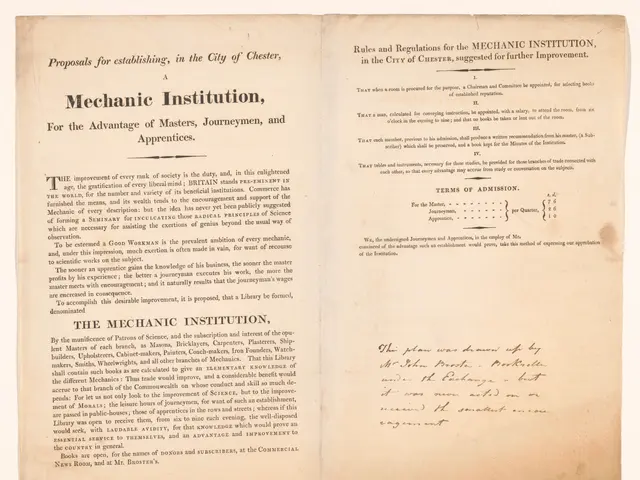German Aerospace Conglomerate OHB Capitalizes on Growing European Skepticism Towards SpaceX
SpaceX rival, a German space company, gains financial advantage due to Elon Musk's skepticism towards SpaceX
Europe's aerospace industry is experiencing significant growth, with OHB, a prominent player based in Bremen, leading the way. The company is not only benefiting from increased demand from civilian and military customers but also capitalizing on growing mistrust towards Elon Musk's SpaceX.
Marco Fuchs, CEO of OHB, has noted a rise in wariness among European customers when presented with SpaceX products. "If you come today with SpaceX products, many people in Europe say: No, thank you, we don't want that," Fuchs stated in an interview with the business magazine "Capital." Fuchs, who counts Musk as a personal acquaintance, has not interacted with him in quite some time.
This growing distrust could translate into substantial orders for OHB, as European alternatives to SpaceX's satellite network Starlink are being developed to minimize dependence on the USA. However, it remains uncertain whether the EU will be able to match the pace of Starlink's expansion.
OHB is recognized as one of the foremost companies in the burgeoning European aerospace industry. Founded in Bremen in the early 80s, the conglomerate employs around 3500 individuals at 15 locations, with expertise in developing, building, launching, and operating satellites, as well as constructing parts for manned space travel. The OHB subsidiary Rocket Factory in Augsburg is one of several German companies focused on developing new rockets that will compete directly with SpaceX and other providers of launch systems in the future.
In the military sector, OHB aims to expand its presence, positioning itself as a company that manufactures satellites for defense applications. This development has sparked internal discussions within the company. Fuchs himself feels comfortable with the German military as a customer. "The last few years of war in Ukraine and the last few months of American politics have shown that we can't always just say: Defense is none of our business, others do it for us," Fuchs commented.
As SpaceX continues to dominate the aerospace industry, Fuchs acknowledges that it is highly unlikely this leadership position will shift in the near future. "That's not going to change anytime soon. Quite the contrary, the lead is constantly growing," he asserted.
While OHB's diversified business segments, including space systems, aerospace, and digital technologies, have enabled the company to adapt to changing market demands, they must navigate the complex regulatory and competitive landscape to capitalize on these opportunities effectively. The French parliament's concerns about the potential merger of Airbus Defence and Space and Thales Alenia Space highlight the political sensitivity surrounding consolidation in the European aerospace sector, which could impact OHB's operations and market dynamics.
Meanwhile, European start-ups like ATMOS Space GmbH are contributing to the innovation of space technologies. These advancements could further enhance Europe's capabilities and competitiveness in the space industry.
In summary, OHB is well-positioned to benefit from any European skepticism towards SpaceX by tapping into its diverse capabilities, innovative technologies, and existing market presence. However, the company needs to navigate the intricate regulatory and competitive landscape skillfully to capitalize on these opportunities successfully.
- Recognizing the growing mistrust towards SpaceX among European customers, OHB plans to capitalize on this sentiment by offering vocational training in space technologies within its community policy, aiming to bolster European competitiveness in the aerospace industry.
- As the European Union develops alternatives to SpaceX's Starlink satellite network to minimize dependence on the USA, OHB's expertise in science, industry, and finance could Play a significant role in funding these projects, thereby facilitating the expansion of Europe's space-and-astronomy sector.
- With the EU's political landscape being sensitive to consolidation in the aerospace sector, OHB must strategically position itself within the regulatory framework to ensure continued growth and success in both civilian and military applications, particularly as new aerospace start-ups like ATMOS Space GmbH continue innovating space technologies.








